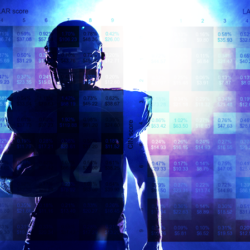
On December 27, 2015, the New England Patriots and the New York Jets were tied 20-20 after regulation and were headed to overtime. The Patriots won the coin toss and elected to kick off rather than receive the ball first. The decision startled the broadcasters, and most of America for that matter. Surely it must have been a mistake. Why would the Patriots give up the chance to score a touchdown and win the game, and hand that opportunity over to their opponents?
The following Wall Street Journal article does a pretty good job of explaining the Patriots coach Bill Belichick’s thought process: by kicking in this situation, Belichick believed the Patriots were actually maximizing their win probability. Given the many scenarios in which the Patriots could stop the Jets’ offense and receive the ball back with a short field, the team would then need only to kick a field goal in order to win the game. In making his decision, Bill Belichick considered the distribution of outcomes, something we apply at SIG quite frequently to help us calculate expected value.
The idea of expected value is very important for both an NFL coach and a trader at SIG. For example, when trading an option on a stock, we need to consider the distribution of outcomes in the price of the underlying stock. This is a difficult problem (often without a definitive answer!), which makes trading challenging and exciting. Check out this WSJ post where Belichick explains his strategy to maximize expected value of winning the game.
h/t to Scott, Equity Options Trader




Subscribe Now
Get each new post sent straight to your inbox